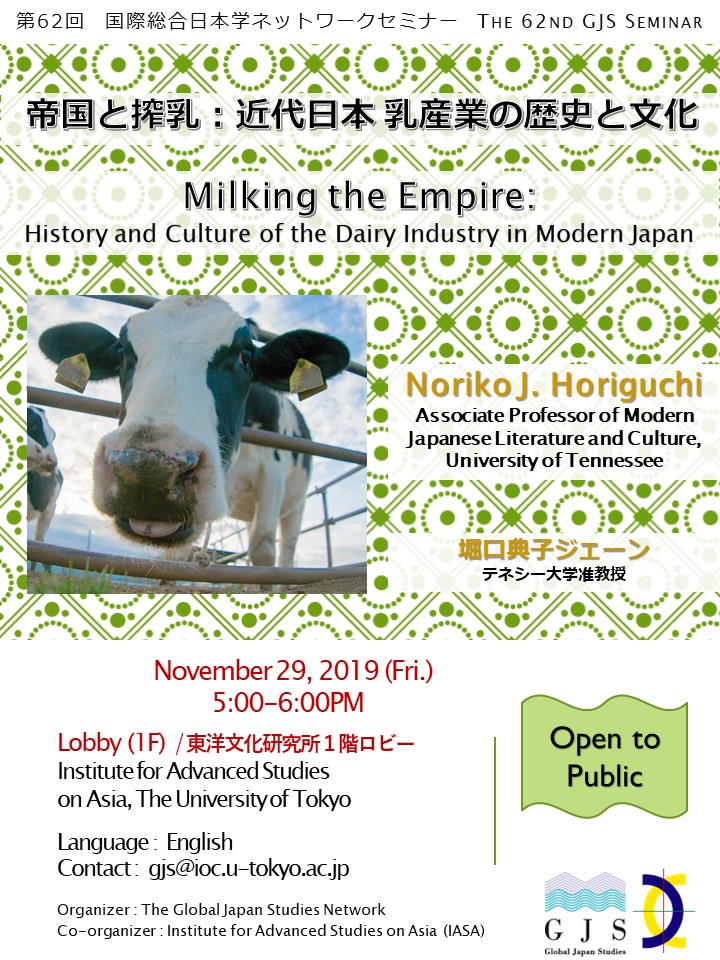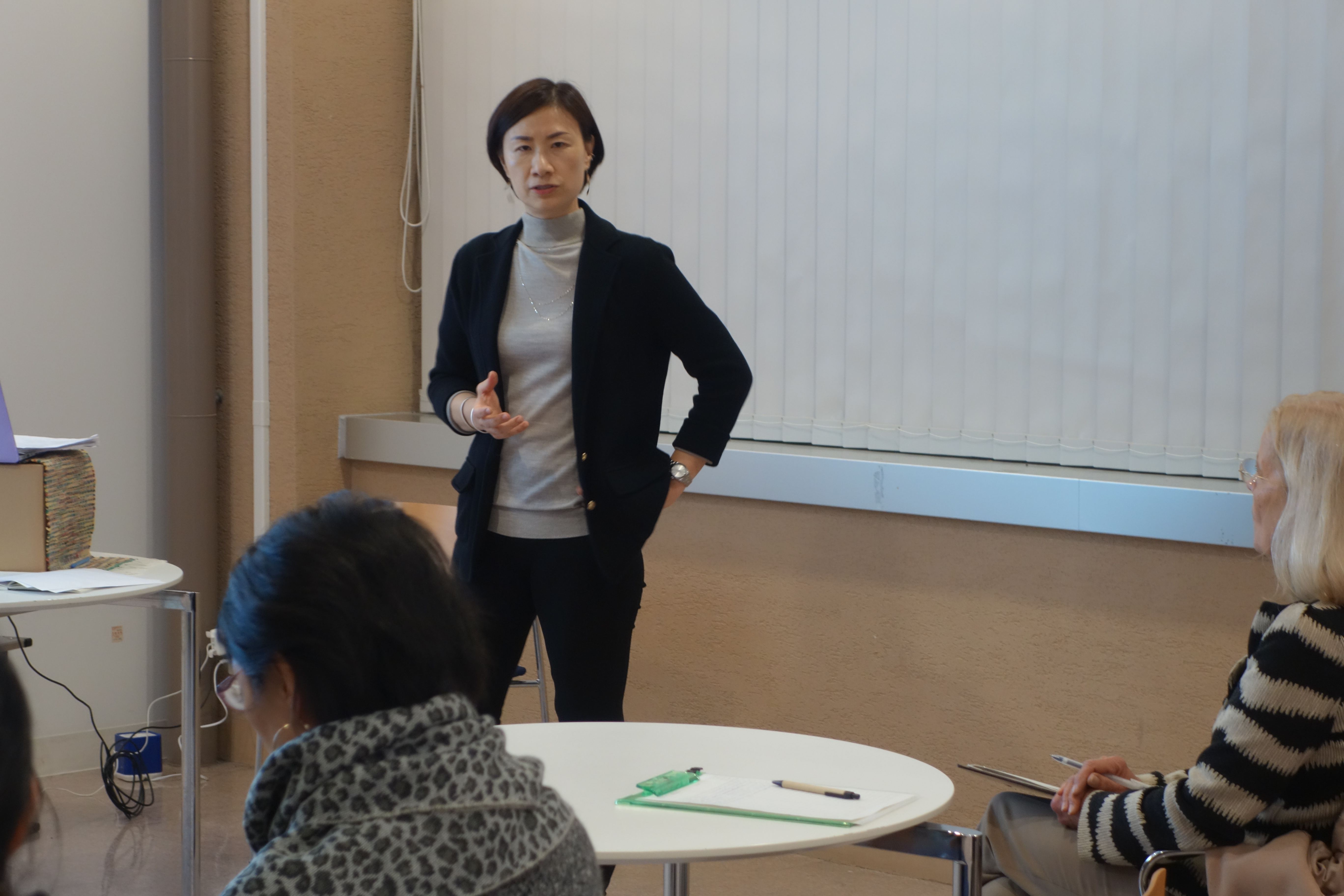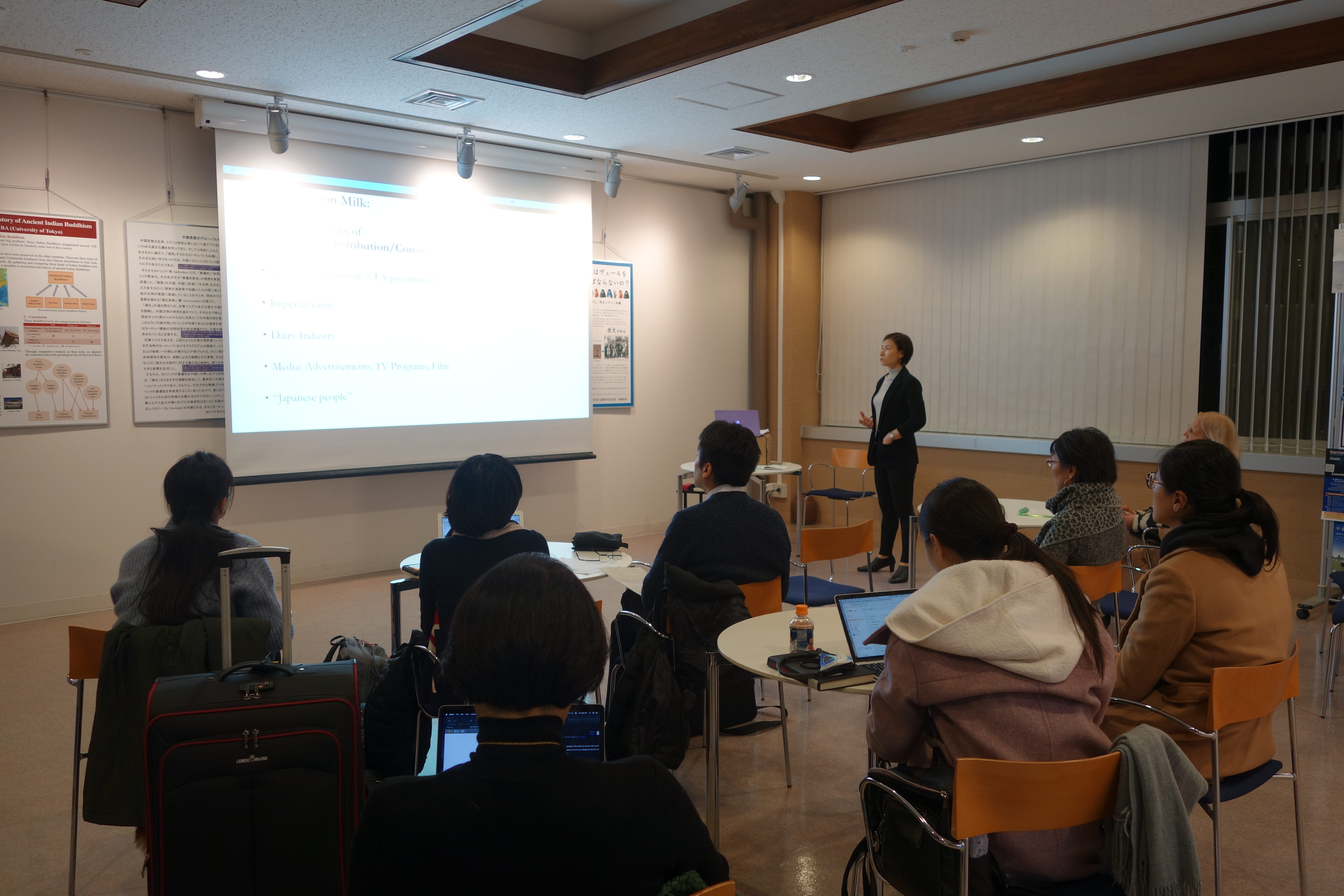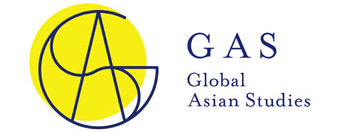第62回GJSセミナー帝国と搾乳:近代日本 乳産業の歴史と文化
| 日時: | 2019年11月29日(金)17:00~18:00 |
|---|---|
| 会場: | 東京大学東洋文化研究所 ロビー(1階) |
| 発表者: | 堀口典子ジェーン(テネシー大学准教授) |
| 使用言語: | 英語 |

発表概要: This presentation is part of Horiguchi’s second book project, which studies how food became part of the Japanese imperial discourse in the prewar and wartime periods (1868-1945), and continued to be part of the nationalist discourse in forming the US-Japan relationship in the Cold War era. It analyzes how literary, visual, and political narratives on food negotiated, both materially and metaphorically, the power dynamics of people within Japan, and also Japan’s relationships with Western (imperial) powers, neighboring Asian nations, and the United States in the transwar years. In this presentation, Horiguchi examines cow’s milk as a substance and a sign that involved such contrasting ideas as purity/impurity, imperialist/democratic, royal/popular, and Japanese tradition/Americanization. In particular, she explores (1) the ideas of Kurosawa Torizō, the head of Yukijirushi Nyūgyō (Snow Brand Milk Products Company, founded in 1925), about the national territory/body and the dairy industry; and (2) dairy products as “cultural artifacts” and their visual representations, including (a) Yukijirushi’s advertisements, (b) “Cow Brand Soap,” a product of Gyūnyū Sekken Kyōshinsha (Cow Brand Soap Kyōshinsha Co., founded in 1909), and (c) the film Franky the Milkman (Gyūnyūya furankī, directed by Nakahira Kō, 1956), a parody of the dairy industry and the film industry, especially the Taiyōzoku (Sun Tribe) genre. Through these visual media, milk as a Cold War cultural artifact played an important role in reconfiguring gendered bodies suited for Japan and in forging a new postwar national identity and a Cold War alliance with the United States.
当日の様子


共催:東京大学東洋文化研究所(IASA)
問い合わせ:gjs[at]ioc.u-tokyo.ac.jp



